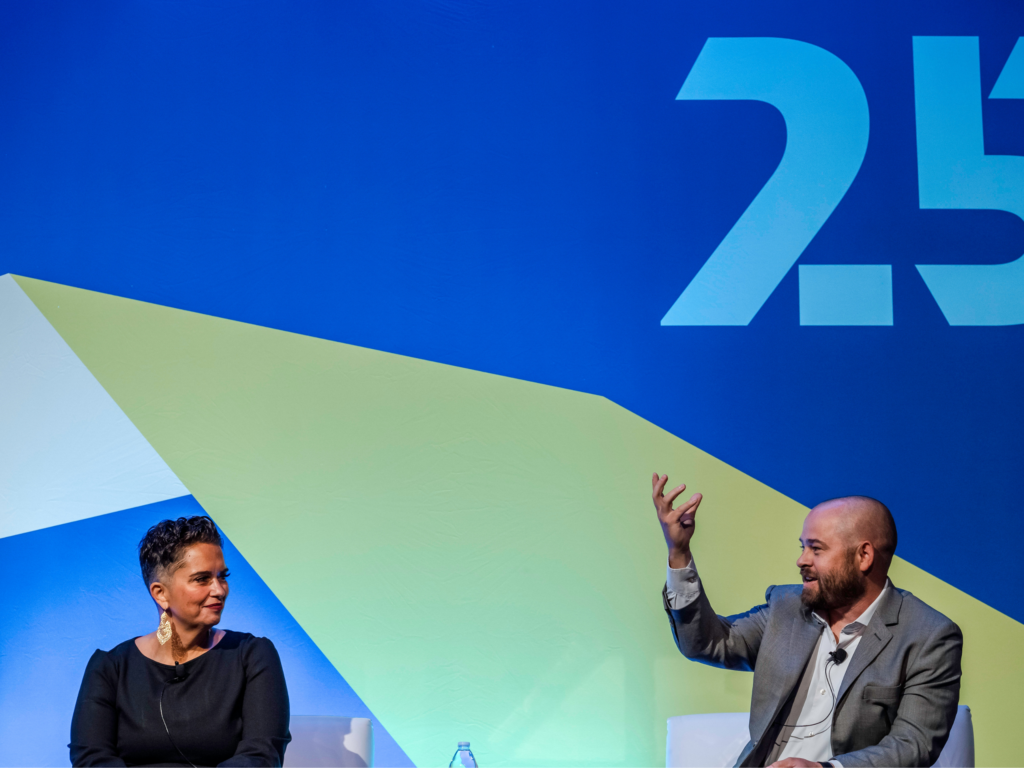Susan Colby of The Bridgespan Group took audience members on a brief history tour of the education reform movement while highlighting the significant media attention and success stories from the charter school movement. At each turn, Colby focused on the growth of the entrepreneurial sector in the past decade, drawing attention to their influence on the American education landscape. “Look to your right and left; the people in this room have touched countless lives,” she said. “Great teaching and great schooling can eradicate poverty in terms of student achievement.”
Susan then opened the stage to a panel of education entrepreneurs, which began by discussing the unprecedented federal funding available to entrepreneurs this year through the Investing In Innovation fund. Moderator Stig Leschly of Newark Charter School Fund noted that the fund has the opportunity to bring the promising ideas of education reformers to scale and could mean a radically changed landscape for education. Larry Berger, Chief Executive Officer and Co-Founder of Wireless Generation, noted that the funding has created a new space for the “next wave of education reformers” to build upon what the organizations in the room had started. Alexandra Bernadotte expressed her concern that the administration’s much-needed results requirements for eligibility of federal funds might shut out entrepreneurial organizations like her own, Beyond 12 – organizations whose ideas could make a real impact, but might not be able to provide the high level of data the administration requires. “We must think about making these funds available to the smaller organizations in our midst,” she said.
Everyone on the panel agreed that the reform movement should keep pressure on education policymakers to continue the gains they’ve made in the last decade. “As an education community I don’t think we’re entirely ready for this,” warned Jon Schnur, Chief Executive Officer and Co-Founder of New Leaders for New Schools, “and we have to be. This community has to push to win as a team.” Evo Moskowitz, Chief Executive Officer of Success Charter Network, stressed that reformers cannot “be genteel” when dealing with state and district leaders. “We must be willing to debate our points of view,” she said, calling for more money and energy to be spent on policy advocacy.



